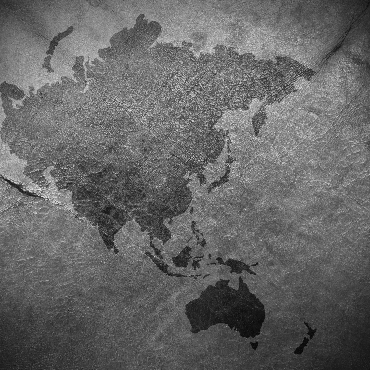Welcome to the inaugural issue of the Indo-Pacific Monitor, the American Foreign Policy Council's newest e-bulletin. Edited by AFPC Fellow in Indo-Pacific Affairs Michael Sobolik, the Indo-Pacific Monitor is designed to track economic, political, and security developments in the Indo-Pacific region. Should you wish to subscribe to the Monitor directly, please click here, and it will email us your request.
THAI ARMY CHIEF WARY OF HONG KONG-TYPE UNREST
General Apirat Kongsompong took a rare step in Thai politics when he openly insinuated that unnamed individuals were employing "hybrid warfare" tactics to threaten the country's military-backed government. The target of Apirat's comments was Thanathorn Juangroongruankit, the leader of the newly established Future Forward Party (FFP) that has quickly risen to become Thailand's third largest party on an anti-junta agenda. Apirat focused his remarks on a photo Thanathorn posted recently with Hong Kong protest leader Joshua Wong, suggesting that the FFP and Thanathorn may seek to undermine or overthrow the country's military junta government. (Washington Post, October 11, 2019)
INDIA RECEIVES A WARNING ABOUT HUAWEI
Officials from the Australian Signals Directorate, Australia's official cybersecurity agency, have advised their Indian counterparts against building out their 5G infrastructure with technology from China's state-linked conglomerate Huawei. Australia is a partner in Five Eyes – a global intelligence-sharing network consisting of the U.S., Great Britain, Canada, Australia, and New Zealand – and on the front lines of combatting Chinese non-traditional espionage. It is also a burgeoning partner with India, the United States, and Japan in the emerging "quadrilateral" defense framework. Notably, U.S. Secretary of State Mike Pompeo received no help from Five Eyes partner Great Britain when he cautioned Europe against working with Huawei last year. However, there are hopes that Australia's recommendations might yield more favorable results in South Asia. (Reuters, September 9, 2019)
CHINA EYES ADDITIONAL NAVAL BASE IN CAMBODIA
The United States Indo-Pacific Command formally warned in August that the People's Liberation Army (PLA) has drawn up construction plans for Ream Naval Base in the Gulf of Thailand. This location would complement China's access to the ports at Hambantota, Sri Lanka and Gwadar, Pakistan, as well as to its military base in Djibouti – effectively flanking both the Arabian Sea and the Bay of Bengal with PLA bases. Most nations in the Association of Southeast Asian Nations (ASEAN) are reticent to choose between the United States and China, but Cambodia is among the first to align with Beijing. Cambodia's neighbors, meanwhile, are watching for how the United States – which retains significant trade leverage over Cambodia – will react to the political decision by Phnom Penh. (Asia Times, August 31, 2019)
THE TRADE CONSEQUENCES OF KASHMIR
In response to Malaysian Prime Minister Mahathir Mohamad’s recent remarks at the United Nations that India invaded and occupied Kashmir, India has announced its intention to review its purchases of palm oil from Malaysia, and to examine whether it will buy the product from Indonesia or sunflower oil from Ukraine instead. Malaysia responded quickly by announcing a review of increasing raw sugar and buffalo meat imports from India. Malaysia trails only Indonesia in global production and export of palm oil, and India is its largest buyer. (Reuters, October 15, 2019)
SINO-RUSSIAN BALANCING, AND MONGOLIA
In September, Russian President Vladimir Putin announced a $1.5 billion investment in Mongolia to finance various infrastructure projects. Putin subsequently agreed to help Mongolia build a natural gas pipeline to service China. Although antipathy toward the United States currently aligns Sino-Russian interests, both nations have a long history of conflict that suggests that their cooperation might be temporary, and their current collaboration vis-a-vis Mongolia is no exception. China's increasing economic clout in Mongolia is a long-term concern for Russian strategists, who seek to preserve a buffer zone between Siberia and China. Mongolia, sandwiched between these two great powers, has recently sent overtures to the United States and characterized America as its "third neighbor," thus pursuing a triangulation grand strategy similar to that of many Central Asian countries. (Nikkei Asian Review, October 3, 2019)
Want these sent to your inbox?
Subscribe
Indo-Pacific Monitor No. 1
Related Categories:
Democracy and Governance; Intelligence and Counterintelligence; Warfare; China; Hong Kong; India; Russia; South Asia; Southeast Asia
